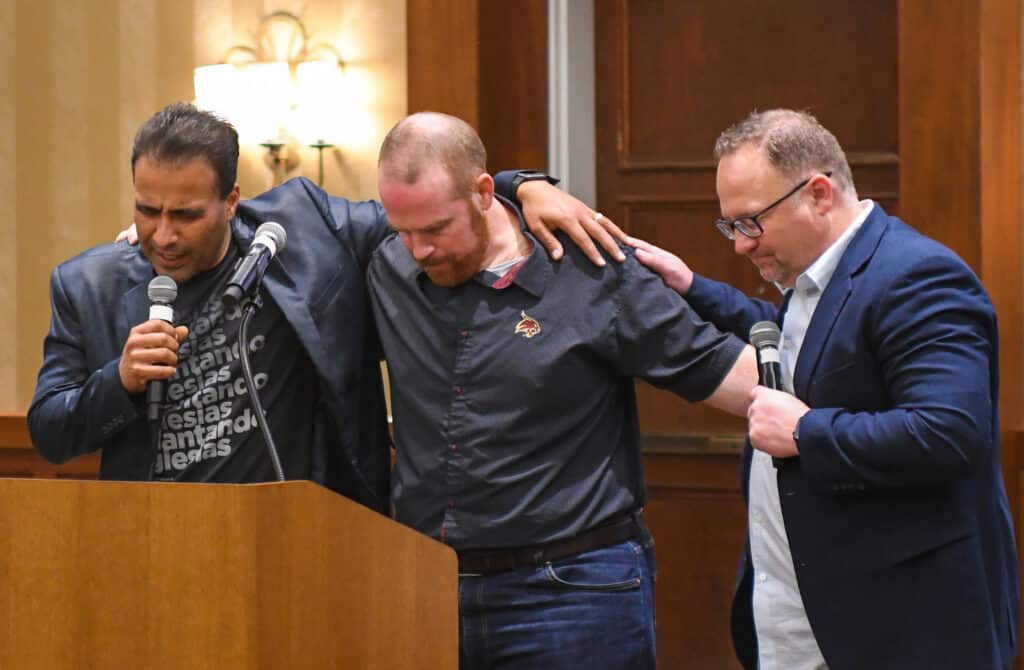AUSTIN, Texas?Those on both sides of a debate over science instruction in Texas public schools are calling the latest in a series of meetings by the Texas State Board of Education a mix of success and failure.
The state board, in meetings Jan. 21-23 to revise state science standards, voted to omit a 20-year-old “strengths and weaknesses” clause in examining scientific theories, including evolution?a disappointment to social conservatives and a victory for advocates of Darwinism.
But the board also tentatively approved new amendments calling for students to “analyze and evaluate scientific explanations” using logic, empirical evidence and observational testing?a recommendation from science educators?and to “analyze and evaluate” the key Darwinian tenets of common ancestry and natural selection in light of the fossil record?additions submitted by social conservatives on the board.
The latter amendments from conservatives drew criticism from evolution advocates, who have vowed to work to remove the new language calling for evaluation of the theories of common ancestry and natural selection.
Darwinists had assailed Texas’ “strengths and weaknesses” clause as a “back-door” to teach biblical creationism. During a public hearing on the new standards Jan. 21 at the State Capitol in Austin, that claim was repeatedly disputed by those on the board who say they want to keep scientific inquiry alive on all theories, including evolution.
The 15-member board, with one member absent, fell short in a 7-7 vote to retain the strengths and weaknesses language. The board’s final vote on the new science curricula and standards is scheduled for March 26-27, with much lobbying expected between now and then.
The Texas science standards are revised every 10 years, which makes the Texas decision important for textbook publishers, who are reluctant to publish multiple editions for different states, and for smaller states that must buy available textbooks.
The National Center for Science Education (NCSE) hailed the removal of the strengths and weaknesses language a “tremendous victory for science education.”
But NCSE Executive Director Eugenie Scott, who testified that “There are no weaknesses in the theory of evolution,” said in a news release: “[The board] didn’t, however, have time to talk to scientists about the creationist-inspired amendments made at the last minute. Once they do, I believe these inaccurate amendments will be removed.”
Kathy Miller of the Texas Freedom Network, which describes itself as “a mainstream voice to counter the religious right,” said about a new amendment calling for evaluation of common ancestry: “That measure could provide a small foothold for teaching creationist ideas and dumbing down biology instruction in Texas.” She also vowed to help see the common ancestry and natural selection language reversed when the board meets again in March.
Meanwhile, the website evolutionnews.org, which is friendly to intelligent design proponents, shot back that evolution-only scientists are looking like stereotypical dogmatists. The web page posted the following question on Jan. 23 regarding the amendments: “How does it promote creationism to insist that students ‘analyze and evaluate’ all the major parts of evolutionary theory? ? They claim to support critical inquiry in science, but whenever it gets applied to evolution, they suddenly expose themselves for the dogmatists they are.”
Board Chairman Don McLeroy, a College Station dentist, submitted the amendment calling for students to “analyze and evaluate the sufficiency or insufficiency of common ancestry to explain the sudden appearance, stasis, and sequential nature of groups in the fossil record.”
Other new amendments pertaining to evolution call for students:
-to “analyze and evaluate how the elements of natural selection including inherited variation, the potential of a population to produce more offspring than can survive, and a finite supply of environmental resources, results in differential reproductive success”;
-to “analyze and evaluate how evidence of common ancestry among groups is provided by the fossil record, biogeography, and homologies including anatomical, molecular, and developmental”;
-and to “evaluate a variety of fossil types, proposed transitional fossils, fossil lineages, and significant fossil deposits and assess the arguments for and against universal common descent in light of this fossil evidence.”
Among those testifying at the committee hearings in Austin was Michael N. Keas, professor of history and philosophy of science at the College at Southwestern, the undergraduate school at Southwestern Baptist Theological Seminary in For














